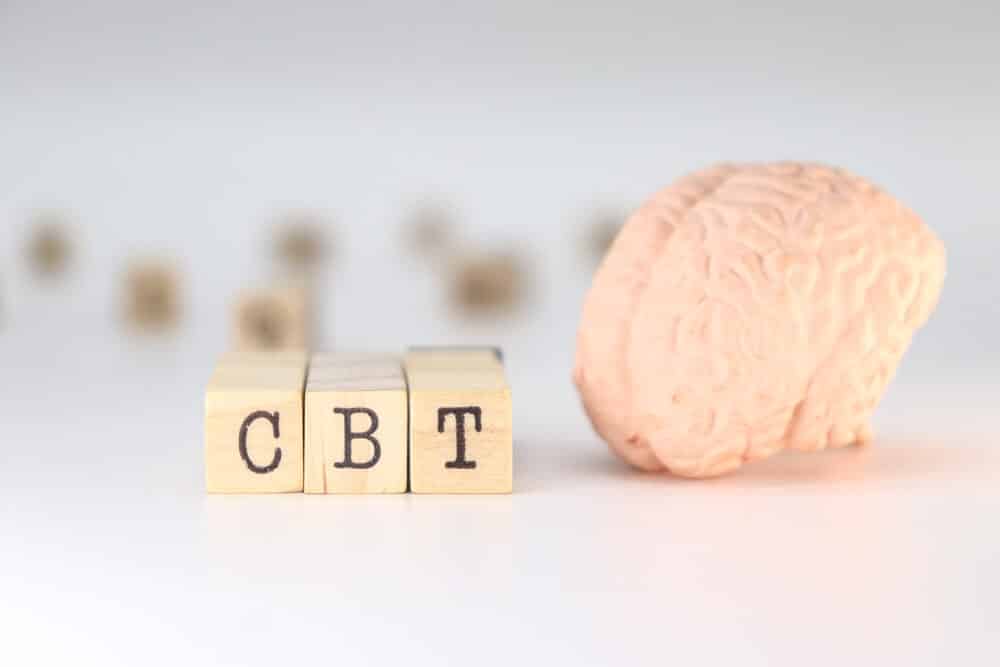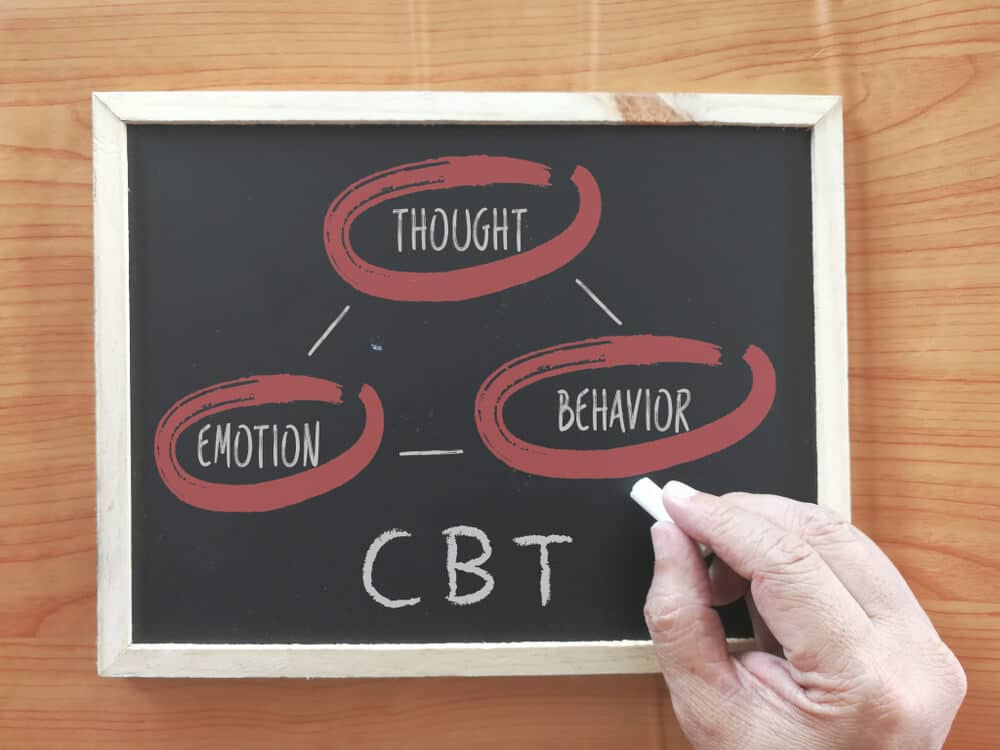Cognitive Behavioral Therapy (CBT) is an effective therapeutic intervention for managing anxiety. Rooted in the premise that an individual’s thoughts, emotions, and behaviors are interconnected, CBT aims to help individuals identify and challenge thought patterns that contribute to feelings of anxiety. By altering these cognitive distortions and introducing healthier coping mechanisms, CBT seeks to reduce the intensity of anxiety symptoms and improve emotional regulation. This evidence-based approach is structured and goal-oriented.
CBT often involves a collaborative process between the therapist and the individual to develop practical strategies for managing distressing thoughts and behaviors. Through a combination of cognitive restructuring, behavioral techniques, and skill-building exercises, CBT equips individuals with the tools necessary to navigate anxiety-provoking situations more effectively and regain control over their emotional responses. If you’re looking for CBT services in California, don’t hesitate to reach out to Moment of Clarity. Our team of mental health professionals can provide more information on CBT and anxiety and help you find long-term relief.

How Does CBT Help With Anxiety?
At its core, CBT is based on the idea that anxiety is often exacerbated by distorted or irrational thinking, which leads to negative emotional and behavioral responses. By identifying and challenging these unhelpful thought patterns, CBT helps patients develop more realistic and balanced ways of thinking, ultimately reducing anxiety.
Here’s how CBT works to reduce anxiety:
- Identifying Negative Thought Patterns – A central component of CBT is recognizing the automatic negative thoughts (ANTs) that arise during moments of anxiety. These thoughts often exaggerate fear or perceive danger in situations where none exists, leading to heightened stress and avoidance behaviors.
- Cognitive Restructuring – Once these negative thoughts are identified, CBT encourages individuals to reframe them. This process involves evaluating anxious thoughts and replacing them with more balanced and realistic ones.
- Behavioral Exposure – CBT also involves confronting feared situations gradually through exposure. When patients with anxiety avoid certain places or activities because they trigger distress, avoidance reinforces the fear and prevents them from realizing that their fears are often exaggerated. Exposure therapy, a key technique in CBT, involves progressively facing these situations in a controlled and systematic way. Over time, repeated exposure helps desensitize individuals to anxiety-provoking situations, leading to a reduction in fear and anxiety.
- Building Coping Strategies – CBT teaches practical coping strategies, such as relaxation techniques, mindfulness, and problem-solving skills, to help individuals manage anxiety when it arises. These tools empower people to handle stress more effectively and avoid becoming overwhelmed by anxious thoughts and feelings.
- Long-term Benefits – The skills learned in CBT extend beyond the therapy sessions and can be applied in real-world situations. By consistently practicing these techniques, individuals can build resilience and gain confidence in managing anxiety independently. The goal of CBT is not only to reduce anxiety in the short term but also to provide individuals with the tools to prevent future episodes and improve quality of life.
CBT helps with anxiety by addressing both the cognitive and behavioral aspects of the condition. By challenging negative thoughts, engaging in gradual exposure, and learning effective coping strategies, patients can significantly reduce their anxiety and develop lasting skills for managing stress and uncertainty.
Mental Health Treatment That Works
How Long Does CBT Take to Work for Severe Anxiety?
The time it takes for CBT to work for severe anxiety varies, but most individuals begin to notice improvements within 20 weeks of sessions. However, for those with more severe or chronic anxiety, progress might take longer. While some people see initial improvements in the first few weeks, more profound changes in thinking and behavior may take more time, especially if anxiety has been long-standing.
The frequency of therapy sessions (typically weekly or bi-weekly) and the individual’s commitment to practicing strategies outside of therapy (such as thought records and exposure exercises) significantly influence the speed of progress. Consistent participation in therapy, alongside homework assignments, helps build the skills necessary to manage anxiety effectively.
Factors like the type of anxiety disorder, the individual’s motivation, and any co-occurring mental health conditions (e.g., depression or PTSD) can also impact the timeline. While CBT often produces noticeable results in a relatively short period, continued practice and occasional follow-up sessions may be necessary for long-term maintenance and to prevent relapse. CBT can lead to lasting improvements in anxiety, but the process requires patience and commitment.

How Many CBT Sessions Are Needed for Anxiety?
The number of CBT sessions needed to treat anxiety can differ depending on the severity of the anxiety, the individual’s specific needs, and how actively they engage with the therapy process. On average, patients with anxiety disorders typically require 12 to 20 sessions, ranging from 30 to 60 minutes each, to experience significant improvements. This timeframe generally reflects a short-term treatment approach, with most sessions occurring weekly or bi-weekly.
For those with more severe or chronic anxiety, therapy may take longer, sometimes extending between 25 and 30 sessions or more. The therapist may also adjust the number of sessions based on progress, with some clients benefiting from longer treatment or additional booster sessions over time to maintain gains and prevent relapse.
The effectiveness of CBT also depends on the individual’s commitment to practicing skills outside of therapy, such as identifying negative thought patterns, completing exposure exercises, and using coping strategies. People who actively engage in homework assignments and apply techniques in real-life situations often see faster and more lasting results.
While CBT can lead to improvements within a relatively short period, the number of sessions needed depends on factors like the severity of the anxiety, personal goals, and whether there are other mental health conditions to address.
What Is the CBT Success Rate?
CBT has a high success rate in treating anxiety disorders, with research consistently showing that it is effective for a range of anxiety-related conditions, such as Generalized Anxiety Disorder (GAD), social anxiety, and specific phobias. A study from the University of Oxford indicates that 43% of individuals who undergo CBT experience significant reductions in anxiety symptoms.
CBT’s success rate is primarily due to its structured, goal-oriented approach, which targets the thought patterns and behaviors that contribute to anxiety. By teaching individuals how to challenge negative thinking and gradually confront feared situations, CBT helps build resilience and long-term coping strategies. For many, CBT provides lasting benefits, with research showing that individuals who complete the therapy often maintain improvements even after treatment ends.
Increasing awareness about CBT and anxiety can help treatment centers like Moment of Clarity reach more people and get them the help they need.
Learn More About CBT and Anxiety by Contacting Moment of Clarity Today
If you’re struggling with anxiety and looking for effective treatment, Moment of Clarity in Santa Ana, California offers specialized CBT programs tailored to help you manage and reduce anxiety symptoms. Our experienced therapists work with you to challenge the negative thought patterns that trigger your anxiety while teaching practical skills to cope with stress and regain control over your life.
Whether you’re dealing with generalized anxiety, social anxiety, or panic attacks, CBT can offer lasting relief by addressing the cognitive and behavioral aspects of your anxiety. Don’t let anxiety hold you back, and take the first step toward feeling better. Contact Moment of Clarity today at 949-625-0564 to schedule a consultation and begin your journey toward a clearer, calmer, and more confident you. Our agents can go over our various mental health disorder treatments, offer more info on CBT and anxiety, and help you get on the road to recovery.
External Sources
- NHS – How it works – Cognitive behavioral therapy (CBT)
- Harvard Health Publishing – Intensive CBT: How fast can I get better?
- University of Oxford – Study finds CBT offers long-term benefits for people with depression




